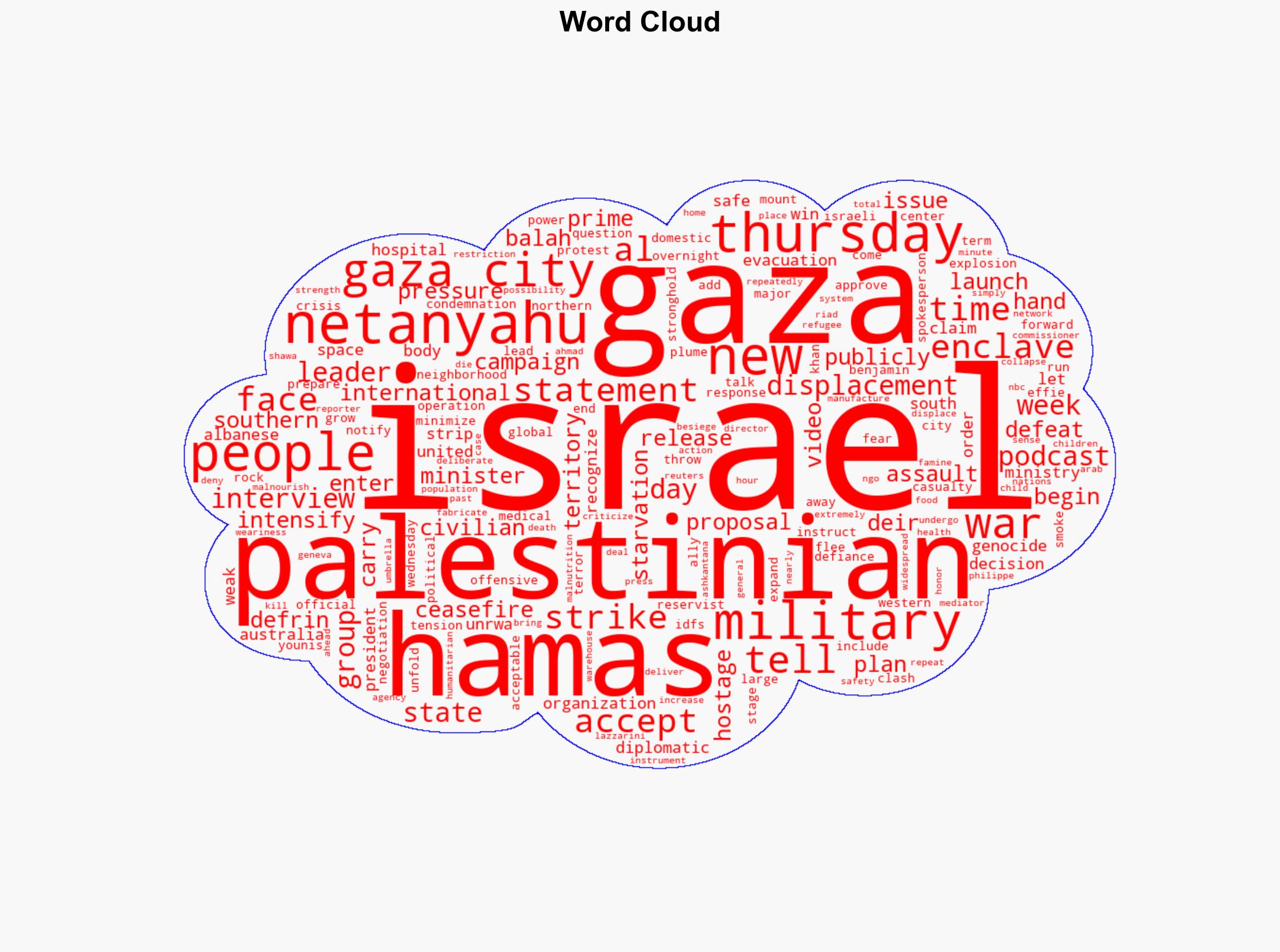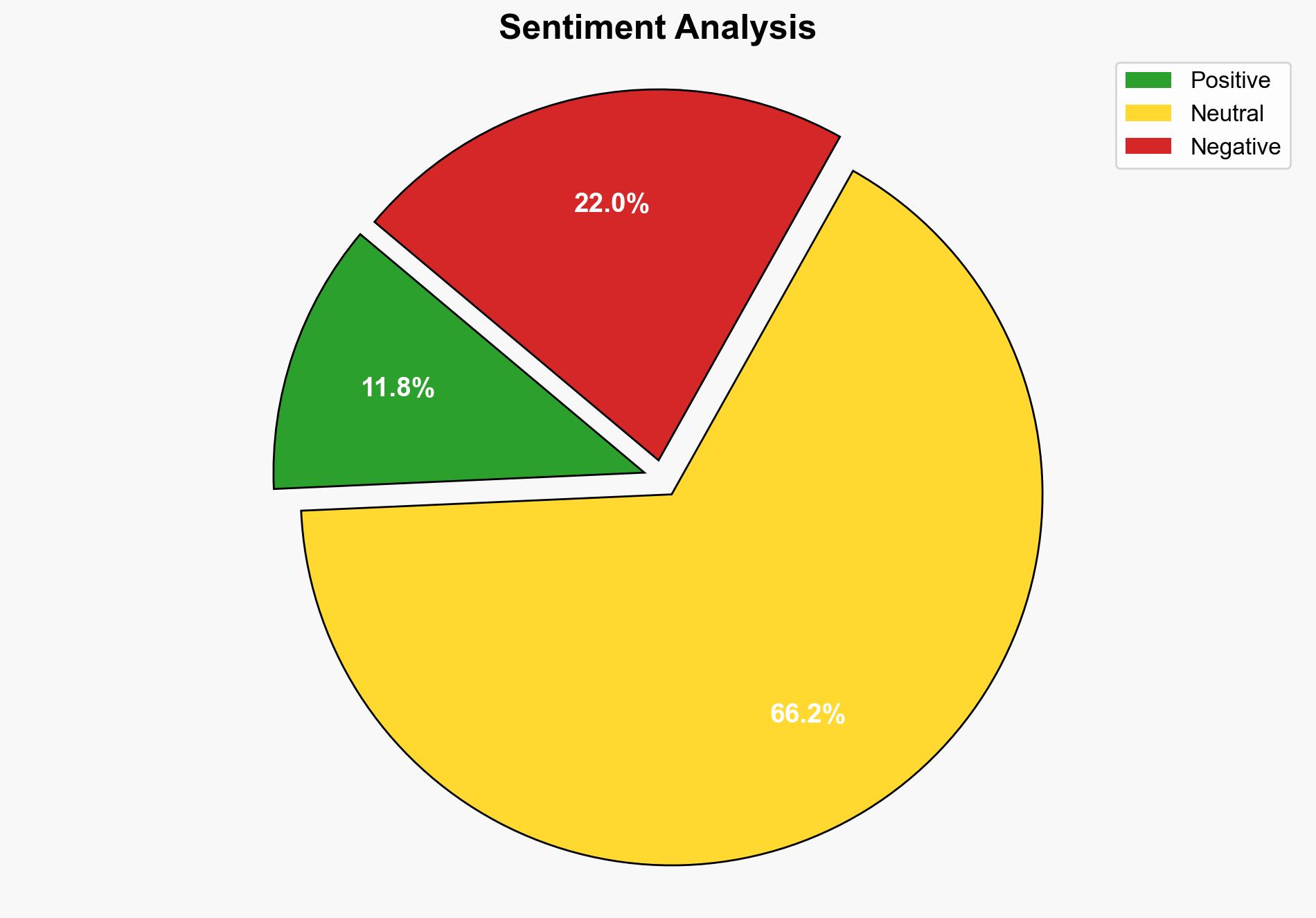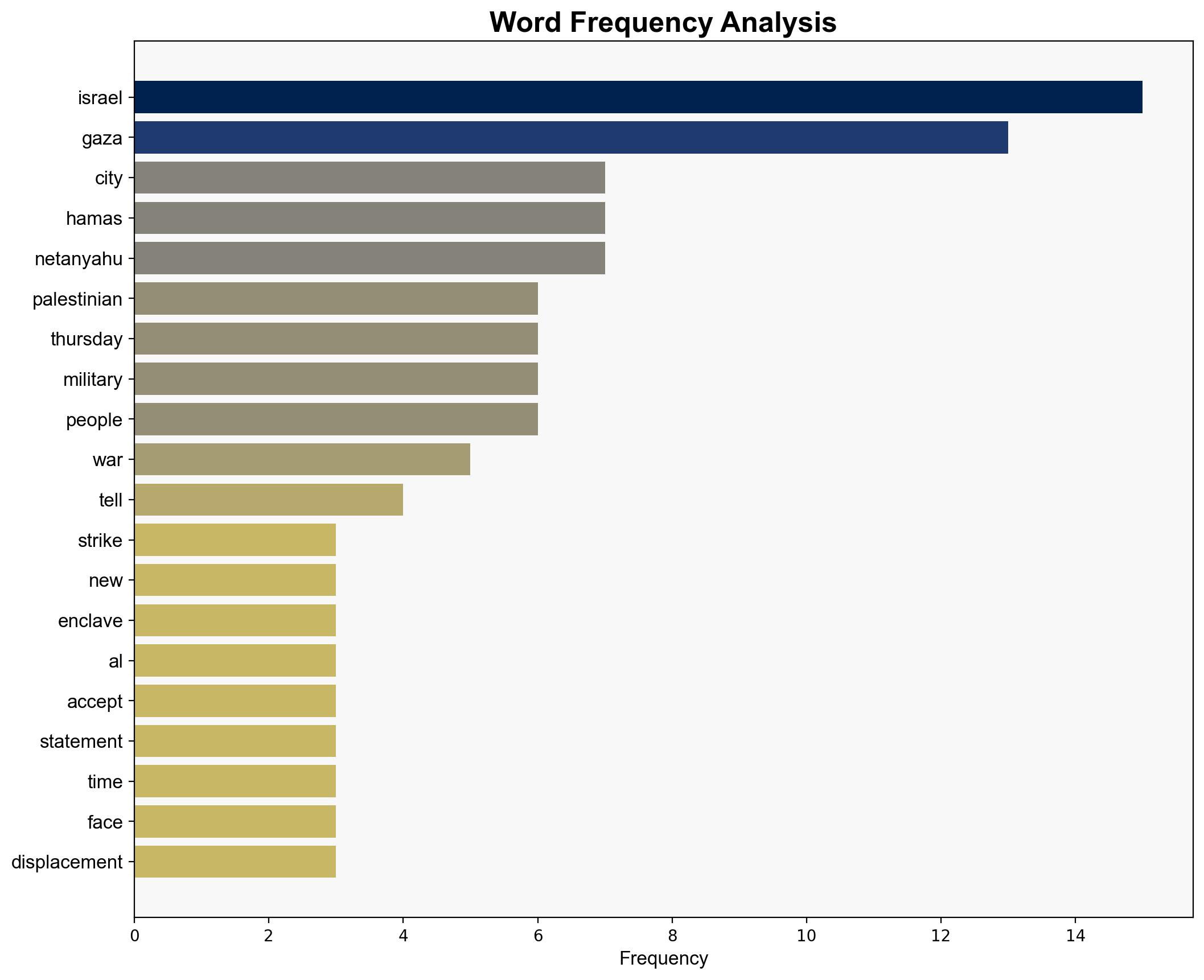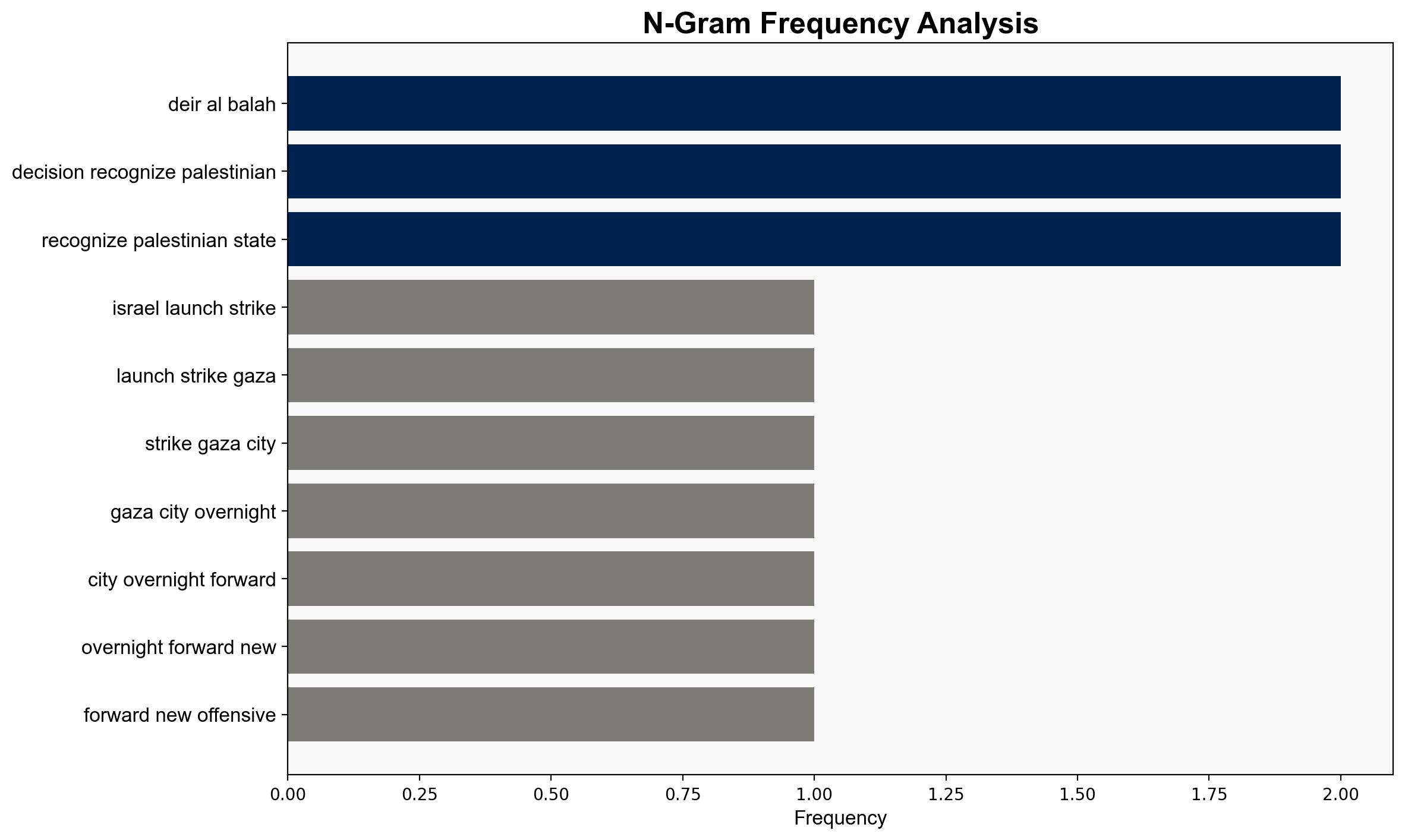Israel bombards Gaza City after launching new offensive in defiance of global outrage – NBC News
Published on: 2025-08-21
Intelligence Report: Israel bombards Gaza City after launching new offensive in defiance of global outrage – NBC News
1. BLUF (Bottom Line Up Front)
The most supported hypothesis is that Israel’s offensive in Gaza is primarily aimed at weakening Hamas’ military and political infrastructure, despite international condemnation. Confidence in this hypothesis is moderate due to the complexity of regional dynamics and the potential for unintended consequences. It is recommended to closely monitor diplomatic engagements and humanitarian impacts, while preparing for potential escalation in regional tensions.
2. Competing Hypotheses
1. **Hypothesis A**: Israel’s offensive is a strategic move to decisively weaken Hamas’ capabilities and political influence in Gaza, prioritizing national security over international opinion.
– **Supporting Evidence**: Statements from Israeli leadership emphasize the goal of defeating Hamas and securing hostages. Military actions target key Hamas strongholds.
– **Contradictory Evidence**: International condemnation and domestic protests suggest potential internal and external pressure to alter strategy.
2. **Hypothesis B**: The offensive is a response to internal political pressures, aiming to consolidate domestic support and distract from internal issues.
– **Supporting Evidence**: Domestic protests and political statements indicate a need to address internal dissent. Military actions could serve as a unifying nationalistic effort.
– **Contradictory Evidence**: The scale and focus of the military operation suggest a broader strategic objective beyond domestic politics.
3. Key Assumptions and Red Flags
– **Assumptions**:
– Israel believes that military action will effectively weaken Hamas and improve long-term security.
– International diplomatic pressure will not significantly alter Israel’s military strategy.
– **Red Flags**:
– Potential underestimation of the humanitarian impact and international backlash.
– Lack of clear post-conflict strategy for Gaza could lead to prolonged instability.
4. Implications and Strategic Risks
– **Geopolitical Risks**: Escalation could draw in regional actors, complicating diplomatic relations and potentially leading to broader conflict.
– **Humanitarian Risks**: Intensified military actions risk exacerbating the humanitarian crisis, potentially leading to international intervention.
– **Economic Risks**: Prolonged conflict may impact regional economies, particularly if trade routes are disrupted.
– **Psychological Risks**: Continued violence could radicalize populations, increasing long-term security threats.
5. Recommendations and Outlook
- Engage in diplomatic efforts to mediate a ceasefire and address humanitarian needs, reducing international tensions.
- Prepare for potential regional spillover effects, including refugee flows and economic disruptions.
- Scenario Projections:
– **Best Case**: Successful weakening of Hamas with minimal civilian casualties and eventual diplomatic resolution.
– **Worst Case**: Escalation into broader regional conflict with significant humanitarian and economic impacts.
– **Most Likely**: Prolonged military engagement with intermittent diplomatic efforts, leading to temporary ceasefires.
6. Key Individuals and Entities
– Benjamin Netanyahu
– Effie Defrin
– Ahmad al Shawa
– Philippe Lazzarini
– Anthony Albanese
7. Thematic Tags
national security threats, counter-terrorism, regional focus, humanitarian crisis, geopolitical strategy





